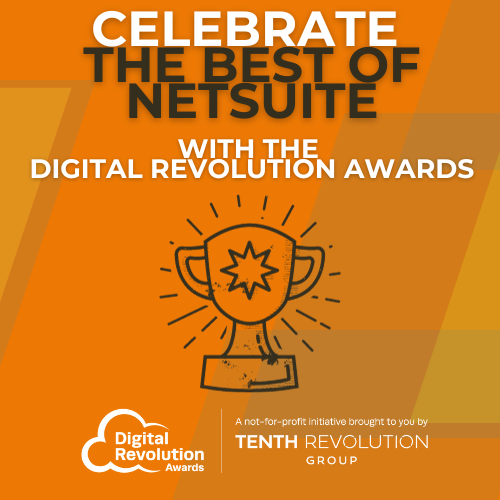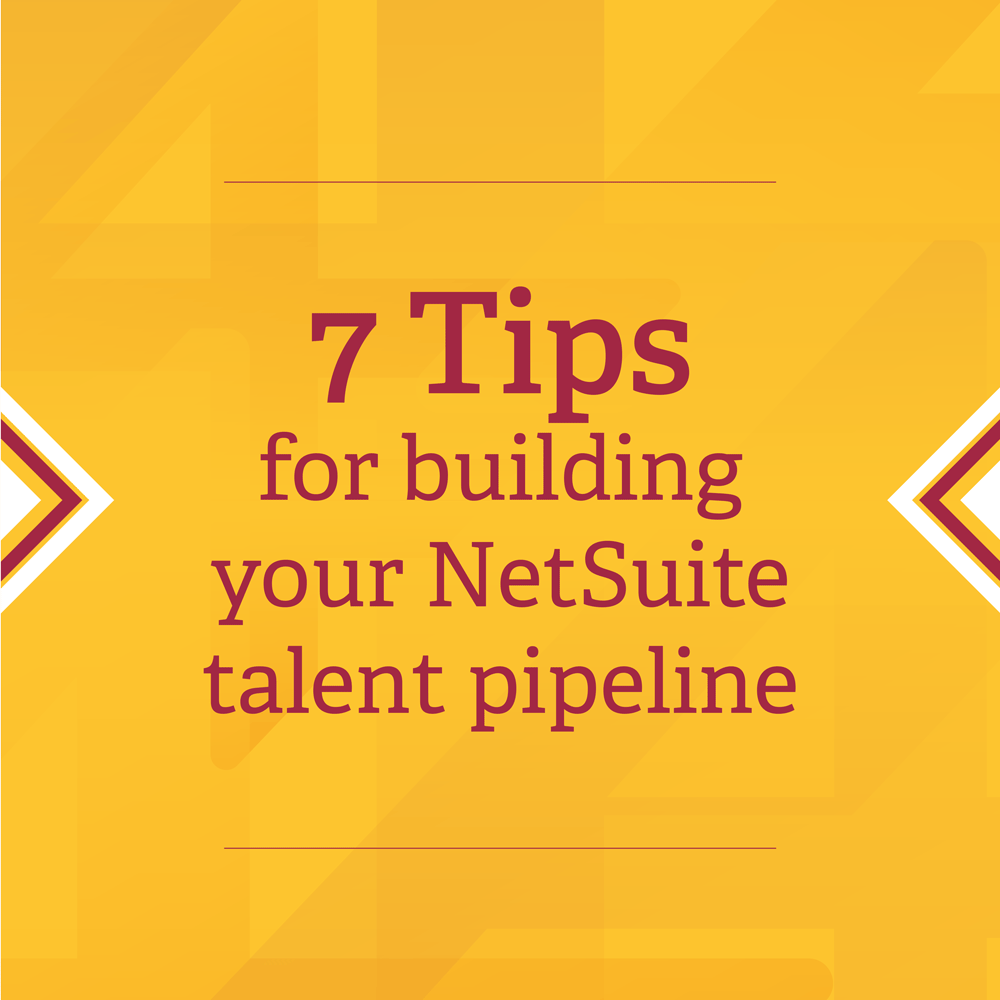An Expert’s guide to interviewing a NetSuite developer

Meeting a candidate in person is probably the most crucial step in the hiring process, and interviewing a NetSuite developer can often be quite stressful for everyone involved. Essentially, it is a 30-minute window for two people to try to learn as much as they can about one another, before making a decision that could affect each other’s lives, at least for the next 12 months.
As the employer in this situation, you’ll no doubt spend the entire meeting trying to review the candidate’s resume, identify whether their professional ambitions align with your business values, and assess their personality to determine if they will be a good fit for the company’s culture—all while trying to be objective and not produce a fickle judgement on their appearance or initial interaction with you.
In the end, your decision should come down to three core aspects: the candidate’s technical skills, their soft skills, and their knowledge of and passion for your company. We asked three NetSuite experts about their experience with hiring a NetSuite developer and what questions would they ask to ensure they can hire the perfect candidate for the job.
Need one-to-one help with your hiring strategy? Speak to our NetSuite staffing team today.Find your answer faster by jumping to the questions you need help with.
- Our NetSuite developer expert panel
- Questions on technical skills
- Questions on soft skills
- Why are they applying for the role?
- Red flags to look out for
- Expanding your hiring strategy
Our NetSuite developer expert panel 
Sean Gillespie, COO at SuiteCentric
As Chief Operating Officer at SuiteCentric, Sean oversees the NetSuite development team, sales and marketing initiatives, and management of the company’s NetSuite Solution Provider and CAP memberships. With more than 20 years of experience in information technology, Sean offers a 360-degree view of how to leverage technology. Sean’s unique experience and career paths include: Web and SQL Development, Solution Architect for Microsoft CRM and ERP Dynamics, IT Director of Application Development, Director of Network Engineering, and VP of Information Technology.
He has a passion for application integration and has spent more than half of his career working in the eCommerce industry. Before SuiteCentric, he was a NetSuite customer for five years, serving as Director of Application Development for a highly customized and complex SuiteCommerce Advanced implementation that required a variety of integrations, SSO, and APIs. He also has extensive experience with NetSuite ERP and CRM.

Robin Mitchell, President at Head in the Cloud
Robin has over 10 years’ experience in a variety of roles within the NetSuite industry, including SuiteScript developer, administrator, and process consultant. His skillset ranges from analyzing customer pain points and designing solutions for them, to architecting SuiteScript projects in order to automate processes and maximize a client’s ROI.
Robin became a certified NetSuite ERP consultant in 2013, and now leads a team of NetSuite consultants and developers to help over 100 companies get more out of NetSuite.

Denis Zhinko, CRM expert and IT Architecture at ScienceSoft
Denis has dedicated 14 years to CRM implementation. During his work as a CRM project manager at ScienceSoft, Denis led more than 30 successful CRM implementation and development projects for B2B and B2C customers. One of his projects was CRM development for a bank with seven million clients, 7,000 employees, and 180 branches across the US.
Denis shares his hands-on experience with the CRM community and business readers, and explores the main CRM industry trends in his articles published at CRM Software Blog, business.com, and SendPulse Blog. Denis also contributes his articles to ScienceSoft’s blog.
Asking questions about a NetSuite developer’s technical skills
According to Denis Zhinko at ScienceSoft, the amount of experience a NetSuite developer has will vary depending on whether they’re in a junior, mid-level, or senior position. However, the renowned CRM expert did highlight a range of different technical skills you should be looking for on a NetSuite developer’s resume, before inviting them in for an interview.
Programs: NetSuite/One World ERP/CRM implementation (including customization and custom development, integration, and post-implementation support activities).
Languages: HTML/DHTML, JavaScript, XML, PHP, SQL.
Databases: Oracle 7/8i/9i/10g, IBM DB2, MS SQL Server, MS Access.
Operation systems: Windows, Linux.
Reporting tools: Crystal Reports 7/8.0.
Office tools: MS Office.
Once an applicant is through to the interview stage, it is essential for you, the hirer, to ask the right questions to determine if their knowledge and experience with NetSuite reflects their resume.
We asked the experts at SuiteCentric and Head in the Cloud, to specify which questions a hiring manager should be asking a NetSuite developer, in order to identify the strength of their technical skillset.
1. How many years of NetSuite development experience do you have?
Ideal answer: 3-4 years of experience
Question explanation: With three or four years of experience, you can likely assign them meaningful projects from the beginning. They will have a working understanding of NetSuite development and will not require much training.
If the candidate is lacking NetSuite development experience, then at least five years of development experience is a good number. As a result, they are senior enough to understand development basics and can probably learn NetSuite fairly quickly.
Download our independent salary survey and discover salary benchmarks based on experience and location.
2. Do you have experience as a NetSuite user? If so, how much?
Ideal answer: Yes, 1-2 years of experience
Question explanation: Real-life NetSuite user experience can be incredibly important, especially in NetSuite consulting. The candidate will be able to take a more comprehensive approach to different issues because they can leverage their own experience as a NetSuite customer. 3. How can you tell when the SEO page generator is broken on a NetSuite SuiteCommerce Advanced webpage?
Ideal answer: You can tell the SEO page generator is broken when the raw page HTML contains a <title> tag that reads “Shopping” (i.e. <title>Shopping</title>).
Question explanation: Our company, SuiteCentric, started by specializing in development and customizations for NetSuite SuiteCommerce Advanced. This is an example of a technical question for that platform. Questions like this will test the candidate’s working knowledge of the platform which they claim to have previously worked on.
4. What are some of your favorite updates in NetSuite 2019.2 and why?
Ideal answer: I’ve worked with SuiteFlow, and I like these updates. The Workflow actions and sub-lists are more flexible, simplifying the process of creating complex workflows for automation. Also, the interface is more intuitive, so it’s easier to switch between edit and view mode. That makes it easier for the end-user to automate processes like transaction approval for custom or standard records.
Question explanation: This is a good question to help understand if the candidate has experience with NetSuite’s latest release and to see if they keep up with current developments. Any NetSuite developer should have a vested interest in the latest NetSuite releases and, at a minimum, will likely have read the 2019.2 release notes.
Keep on top of upcoming trends in the NetSuite market.5. How many scripts have you written?
Ideal answer: A candidate with 1-2 years’ experience: between 25-50 scripts. A candidate with 2-5 years‘ experience: over 100 scripts.
Question explanation: How many scripts a developer has written will indicate the difference between those “familiar” with the API and in need of more training, versus those that have a firm grasp on it and can operate independently.
If they’ve created 10 or fewer SuiteScripts, they are sure to need additional training before they can be thought of as a competent SuiteScript developer. If someone has 1-2 years of experience with SuiteScript, they should have created at least 25-50 scripts. And finally, If someone has 2-5 years, their number should be in the hundreds, and they should have a firm grasp on all of the various types of SuiteScripts.
6. Tell me about your experience with SuiteScript 1.0 and 2.0?
Ideal answer: They can confirm they’re fully trained to work with SuiteScript 1.0. However, they should focus on discussing their experience with SuiteScript 2.0, particularly their knowledge on mapping and reducing scripts.
Question explanation: If someone has only worked with SuiteScript 1.0, then they are lagging several years behind at this point. It may be an indicator that they are hesitant to learn new skills.
When asking about SuiteScript 2.0, asking about map/reduce scripts can indicate a level of competency. The map/reduce script type is a new feature in SuiteScript 2.0 and is arguably the most complex type of script. If someone has created at least a handful of fairly advanced map/reduce scripts, then it’s likely that they are a very competent SuiteScript developer.
7. Have you worked with other frameworks?
Ideal answer: Yes, I’ve had experience working with Node JS and jQuery.
Question explanation: Asking about other standard web development frameworks can give you an indication of how in touch the developer is with the broader web development community.
If they are familiar with other tools, then they are more likely to find better creative solutions to development problems than those who have only worked with one software.
8. How many words can you type correctly per minute?
Ideal answer: 40 words per minute
Question explanation: For developers, some may think that word typing skills are irrelevant. However, Robin Mitchell, President of Head in the Cloud, would disagree:
“When creating long-lasting quality code, clarity in variable names and function names is extremely important. If you can type accurately, then you can write quality code faster and without having to use short abbreviations in your code.”
Include a technical assessment for your NetSuite developer
A great way to verify a candidate’s hard skills is by including a technical assessment in your interview process. Here are some ideas from NetSuite consultant experts Head in the Cloud:
If you have a sandbox or test NetSuite account, ask if they would be comfortable with you setting them up with login access and giving them a simple scripting problem to solve on their own time. Their ability to capture the requirements and solve the problem you give them can be a powerful preview of what their job performance will be like.
For advanced developer and consultant roles, ask them to solve a problem with you in real-time. This can be done in person or over a screen-share call. You can set them up with login access, show them a problem scenario that you’ve set up, and have them solve it in 15-30 minutes.
Assessing a NetSuite developer’s Soft Skills
Although a NetSuite developer’s technical skillset is an essential part of the role, you should still utilize a significant part of the meeting to discuss their soft skills.
To hire the right developer, you need to be looking for a candidate that has adept communication skills, can demonstrate their the ability to adapt to any situation, show how they can manage their time and, finally, how capable they are at working independently as well as in a team.
The NetSuite specialist at SuiteCentric has suggested some essential questions to ask your next NetSuite developer applicant.
1. How well do you work in a team?
Ideal Answer: I work very well in a team. I have led several teams on specific development projects, and I have served as the direct point of contact for the customer. I have also worked in a more junior capacity helping to support team projects.
Question Explanation: Candidates who have experience working in teams in different roles are valuable. They have been there before and will feel comfortable collaborating with other colleagues regardless of their seniority.
2. Do you prefer working in a team or do you prefer working alone and why?
Ideal Answer: I can do both, but I enjoy working in a team. Collaborating to solve problems can be rewarding.
Question Explanation: Knowing this preference will help interviewers gauge how the candidate will fit within the company or a specific division. It can also influence the types of projects the candidate will be assigned.
3. Was there ever a time in your career where you were asked to do something that you’ve never done before? How did you handle it?
Ideal Answer: Yes, I had to create a customized connector between the NetSuite ERP and a customer’s mobile app. Because I had never done this before, I met with one of our more senior developers for insight into this process. She had just finished completing a similar project for a different customer and was helpful. I also looked in the NetSuite developer forum for related notes. The connector worked out well.
Question Explanation: Understanding the candidate’s ability to handle these types of situations is critical. They must demonstrate the capacity to learn and manage up if the situation calls for it.
4. Has there ever been a time when you felt you needed to change or adjust your behavior while at work? If so, how did you accomplish this?
Ideal Answer: Yes. Early in my career, I had a habit of being 1-2 minutes late to meetings. I realized that it was disrespectful of other people’s time. To fix this, I set a calendar reminder 10-15 minutes before my meetings to ensure I would arrive early. I quickly realized that arriving early gave me time to settle and review any notes or talking points before the meeting.
Question Explanation: This is a chance for the interviewer to get a sense of the developer’s emotional intelligence. Being able to read a room or a situation is a great skill to have in the workplace, especially if the candidate will be customer-facing.
Why are they applying for the role?
It is important to gain an in-depth insight into why the applicant would like to work for your business. This is an excellent time for you to benchmark how much research a candidate has done on your company and whether their personality would be a good fit for the company culture. Here are some suggestions the experts at SuiteCentric recommend you ask in your next interview with a NetSuite developer.
1. Why do you want to work for this company?
Ideal Answer: I’ve been following your company for a while. I’ve always been impressed with your customer list and the awards it has received. My values align with the company, and I’m ready for new challenges.
Question Explanation: This will help gauge their interest level in your company. The candidate should express genuine interest and eagerness to join your team.
2. Why are you the right person for this position?
Ideal Answer: I have a proven background in NetSuite development over a five-year career. I worked as an end-user for several years and several more as a NetSuite consultant, so I know both sides of the customer-consultant dynamic. I also have leadership experience as I’ve led several projects from start to finish, and all were successful. I believe I will be a great fit for your team.
Question Explanation: This question will help the candidate highlight a handful of notable takeaways about their background and what they bring to the table. They should be the items the candidate is most proud of and, ideally, will present an honest assessment of their accomplishments.
3. What collaborative workplace tools have you used? Have you used Slack, Jira, and BitBucket?
Ideal Answer: Yes, I’ve used all of these and I also have experience with HipChat.
Question Explanation: Gaining an understanding of collaborative workplace tools can be important. Candidates with little-to-no experience of working with Jira or another similar tool will require additional training. The training might not be too complicated, but it will be another thing that has to be learned before they are fully ready for the job.

Red Flags in a NetSuite developer’s interview
It is important to remember that some applicants may be better at interviewing than they might be at the actual job. Even if a candidate has answered everything correctly, it doesn’t necessarily mean you should hire them.
To limit your chances of employing a bad hire, you need to understand which red flags you should be looking out for. Here’s what some experts say on spotting red flags in a NetSuite developer interview.
Sean Gillespie, COO at SuiteCentric:
“I am suspicious if a candidate demonstrates a lack of research into the company before the interview. They should have an understanding of what the company does, the mission statement or values, and, at the bare minimum, interviewers should be able to tell if the candidate reviewed the ‘About Us’ page. Being able to discuss the industry or current or past clients is a positive sign, as well.
“If someone lacks passion and personality during responses to questions, that is a red flag. I understand people being nervous, but the candidate has to show at least a little liveliness during your conversation with them. It can help you understand how they feel about the position and if they are ambitious.
“And finally, If a candidate doesn’t admit to a weakness or they seem to display a victim mentality, then I take note. Honesty is everything, and no one is perfect. A company works best when its employees are honest. Through honesty, they will understand each other’s strengths and weaknesses, so they can cover any skills gaps or pick someone up when they are down.”
Robin Mitchell, President at Head in the Cloud:
“Unless you’re planning on investing time training them up, the most important red flag you need to look out for is an applicant with no NetSuite experience or a low level of SuiteScript competency.
“Other red flags you should be looking out for are people with poor communications skills, both written and verbal, and candidates who haven’t worked in a proper business before. This can demonstrate a lack of knowledge on business processes applicable to the job.”
Expanding the interview with a NetSuite Developer
Having 30 minutes to decide whether a candidate is the perfect person for the job can be quite challenging, but it doesn’t have to be. Consider creating a multi-phase hiring strategy that can relieve the pressure of the process and allow you to gain a better insight into the candidates. With a combination of phone interviews, face-to-face meetings, and a technical assessment, you will be able to have a better understanding of applicant capabilities. We also suggest utilizing our NetSuite staffing specialist as a resource for your company. Our consultants have access to a talent pool of NetSuite developers. They can arrange an interview with them on your behalf, to identify whether a candidate will be a good fit for your company.
Sure, outsourcing help and adding other phases may seem a more expensive interview process, but this may save you money in the long. If you’re not 100% sure about your applicants and make an impulsive hire, you’ll find you might have to replace your NetSuite developer just a few months down the line.
Looking for a NetSuite developer?
Speak to our consultants today and gain access to eligible candidates within 24 hours.





